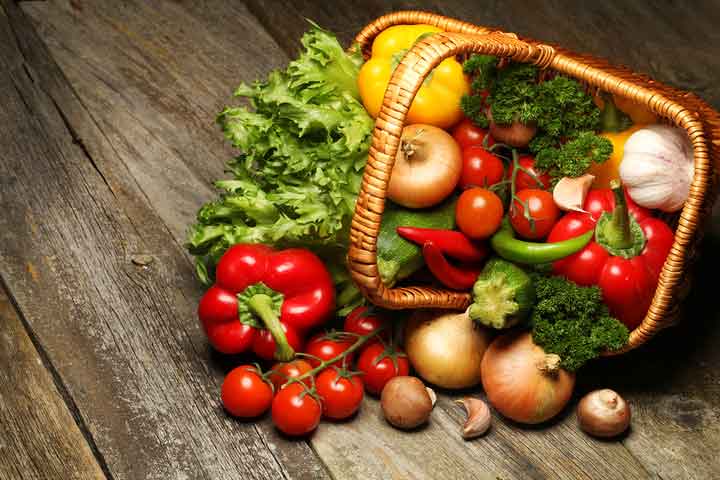
Understanding Organic Food
In recent years, the popularity of organic food has grown significantly around the world, and New Zealand is no exception. Organic food refers to produce and products that are grown or made without synthetic pesticides, chemical fertilizers, genetically modified organisms (GMOs), or artificial additives. It emphasizes sustainable farming practices, animal welfare, and environmental protection. In New Zealand, organic food is increasingly being chosen not just for its perceived health benefits, but also for ethical and environmental reasons.
What Makes Food Organic in New Zealand?
To be labeled organic in New Zealand, food must meet strict certification standards. The main certification body is BioGro New Zealand, followed by AsureQuality. These organizations ensure that products comply with rigorous guidelines including soil health, biodiversity, natural pest control, and animal welfare. Organic Food NZ products carry labels that indicate their certification status, helping consumers identify trustworthy organic goods. For imported products, similar international certifications are recognized if they meet New Zealand’s standards.
Why Choose Organic Food NZ?
There are several reasons why more people are switching to Organic Food NZ options. First, health-conscious individuals are looking to reduce their exposure to harmful chemicals often found in conventionally grown produce. Second, organic farming supports biodiversity and reduces pollution, making it a more eco-friendly choice. Third, supporting local organic farmers helps sustain small-scale agriculture and rural communities. Lastly, some people claim that organic foods taste better due to natural growth processes and nutrient-rich soil.
Where to Buy Organic Food NZ
Consumers have more access than ever to Organic Food NZ thanks to a growing number of outlets. Major supermarkets like Countdown and New World stock organic products in designated sections. Specialty organic stores such as Huckleberry, Commonsense Organics, and GoodFor offer a wide range of certified organic goods. Additionally, farmer’s markets across cities such as Auckland, Wellington, and Christchurch provide direct access to fresh, locally grown organic produce. Many online platforms like Organic Boxes or Ooooby also deliver organic groceries to your doorstep, offering convenience along with transparency.
Common Organic Foods Available in NZ
Organic Food NZ options are wide-ranging. The most commonly available items include fresh fruits and vegetables, dairy products, eggs, and meats. Organic grains, flours, nuts, and seeds are also widely accessible. For those looking to avoid preservatives and additives, organic packaged foods such as snacks, juices, sauces, and even baby food are now easily found. Organic wine, olive oil, and herbal teas are popular among those who prioritize a cleaner lifestyle.
Organic Farming Practices in New Zealand
Organic farming in New Zealand is rooted in a deep respect for nature and sustainability. Farmers who produce Organic Food NZ use crop rotation, composting, and biological pest control instead of chemical alternatives. They also maintain strict animal welfare standards, giving livestock access to pasture and natural feeds without hormones or antibiotics. Organic farms aim to preserve soil fertility, reduce greenhouse gas emissions, and promote long-term ecological balance. Many farms even engage in regenerative farming techniques, making them leaders in sustainable agriculture.
Challenges in the Organic Food Industry
Despite its benefits, the Organic Food NZ sector faces some challenges. One key issue is the higher cost of organic products compared to conventional ones. This is due to labor-intensive practices, certification costs, and lower crop yields. As a result, organic food may not be accessible to everyone. Another challenge is consumer confusion caused by misleading labels or unverified “natural” claims. Therefore, recognizing official certification logos is crucial for buyers. Lastly, organic farming is weather-dependent and vulnerable to climate changes, which can impact supply and pricing.
Tips for First-Time Organic Shoppers
If you’re new to Organic Food NZ, start by switching a few staple items like milk, eggs, or leafy greens. These are often most affected by conventional pesticides. Shop at local markets or directly from certified organic farms to ensure authenticity and reduce costs. Look for BioGro or AsureQuality logos on product packaging. Don’t be discouraged by imperfect-looking produce—organic fruits and vegetables may not be as shiny, but they’re often more nutrient-dense. Planning meals and sticking to a shopping list can help you manage your organic grocery budget effectively.
Organic Food NZ for Special Diets
Organic Food NZ is also ideal for people with dietary restrictions or allergies. Since these products avoid artificial additives, they are often better tolerated by individuals sensitive to chemicals. Many organic items are gluten-free, dairy-free, or vegan, catering to a variety of nutritional needs. Organic baby food is another growing segment, offering parents peace of mind when feeding young children. Pet owners are also turning to organic options for dogs and cats to ensure clean, chemical-free nutrition.
Future of Organic Food in New Zealand
The demand for Organic Food NZ is expected to grow as more people become health-conscious and environmentally aware. Advances in technology and farming techniques are making organic production more efficient, which could help reduce costs over time. Government support through subsidies and education campaigns can also boost awareness and accessibility. New Zealand’s clean, green image makes it an ideal location for expanding organic exports, particularly to markets like Australia, China, and the United States.
Final Thoughts
Organic Food NZ is more than just a dietary choice—it’s a lifestyle commitment to better health, environmental care, and ethical farming. For beginners, the transition may seem overwhelming at first, but starting small and making gradual changes can make it manageable and rewarding. Whether you’re drawn to organic food for its nutritional benefits, environmental impact, or support of local farmers, there’s no better time to explore what New Zealand’s organic industry has to offer.